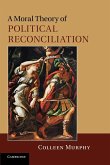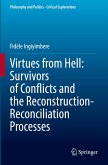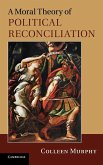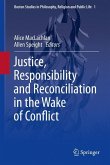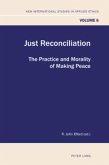Conceived at the moment of Girard¿s death in November 2015, and written up in the period of strategic stock-taking ¿after Girard¿, this book aims to suggest briefly and clearly to a wide English-speaking audience that: (i) Girard has in fact cracked the enigma of the obscurely ¿foundational¿ complicity between violence and the sacred; (ii) that his ¿mimetic theory¿ and his writings on biblical texts, when read as a fundamental ¿anthropological argument¿ continuous with Darwin, bring formidable new light to a vast range of enigmas and problems: terrorist violence, the new atheism, the function of world¿s oldest temple, the Good Friday Agreement¿ In counterpoint to this (largely) ¿dark¿ matter, they illuminate superbly (¿from below¿) the nature and ways of creation, revelation, redemption¿ and thus also of Reconciliation. Such insights provide a novel and exciting resource for scanning the knots, the black holes and the hidden ¿sacrificial¿ logic that still secretly shapes cultural, social and political life today. The analytical tool-set Girard supplies can help shape the key dialogues needed to prepare delivering practices of reconciliation--and to avoid auto-generated ¿apocalypses¿-- in the world of tomorrow.




